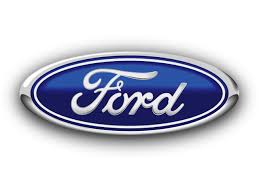Taurus V6-3.0L VIN 2 Flex Fuel (1997)

Fuel: Description and Operation
WHAT FUELS SHOULD BE USED?
The Taurus Flexible Fuel Vehicle (FFV) has two versions, one for fuel methanol and one for fuel ethanol. Unleaded gasoline may be used in either
version. However, fuel methanol is not to be used in a fuel ethanol vehicle, and vice-versa.
These vehicles will operate well on ordinary commercial quality unleaded regular gasoline, but only the highest quality fuel methanol or fuel ethanol
will provide the same level of satisfaction. The American Automobile Manufacturers Association (AAMA) has published standards for these fuels
designed to give FFVs the best possible performance, safety and durability. To assist alcohol fuel providers in meeting these standards, the AAMA has
also published companion guidelines which prescribe "Methanol and Ethanol Fuel Compatible" dispensing station equipment. Stations may apply to
the AAMA to be certified as meeting these standards. However, not all stations meet these standards at this time. To ensure proper operation of the
Taurus FFV on either alcohol, refuel at stations certified by the AAMA.
WHAT IS FUEL METHANOL?
-
Methanol (also known as methyl alcohol or wood alcohol) is a colorless, odorless liquid produced from coal or natural gas. It is NOT the same
alcohol found in alcoholic beverages (ethanol or ethyl alcohol). Methanol is toxic if ingested.
-
Fuel methanol (M85) is a mixture of approximately 85% commercial grade methanol (M100) and 15% unleaded gasoline. The resulting fuel has a
higher octane rating than unleaded regular gasoline, allowing engine designs with higher compression and corresponding greater engine efficiency
and performance (power).
-
Winter blends may contain up to 30% unleaded gasoline to enhance cold engine starts, hence the sometimes used M85-M70 designation. Severe
cold weather may require additional measures for reliable starting. Refer to vehicle Owner Guide for specific information for starting under these
conditions.
-
Methanol corrodes some metals and may cause some plastic and rubber components to swell, break down or become brittle and crack, especially
when mixed with gasoline. Special materials and procedures have been developed for the Taurus FFV and for the dispensers used by M85 fuel
providers.
-
Since methanol has less energy per gallon, fuel economy in miles per gallon will decrease as the percentage of methanol goes up. However, the
FFV uses more of the energy available in the fuel when running on M85-M70 than on gasoline. Flexible fuel vehicles burning fuel methanol have
lower exhaust emissions than comparable gasoline vehicles.
WHAT IS FUEL ETHANOL?
-
Pure ethanol is the alcohol which is the intoxicating agent in liquor, beer and wine. It is distilled from the fermentation of plants such as field corn
and sugar cane. A denaturant that imparts a bad taste is added to ethanol to preclude consumption. Up to 5% hydrocarbons (such as unleaded
gasoline) is a typical denaturant. The resulting denatured ethanol is designated Ed100 when used as a feedstock for motor fuels.
-
Fuel ethanol (Ed85) is then made by adding 15% more unleaded gasoline. The resulting fuel also has a higher octane rating than unleaded regular
gasoline, allowing engine designs with higher compression and corresponding greater engine efficiency and performance (power).
-
As with fuel methanol, winter blends may contain up to 25% unleaded gasoline (plus the denaturant) to enhance cold engine starts, hence the
sometimes used Ed85-Ed75 designation. Severely cold weather may require additional measures for reliable starting. Refer to vehicle Owner
Guide for specific information for starting under these conditions.
-
Like methanol, ethanol is more chemically active than gasoline. It corrodes some metals and may cause some plastic and rubber components to
swell, break down or become brittle and crack, especially when mixed with gasoline. The same special materials and procedures developed for the
Taurus Methanol FFV are also used in the Taurus Ethanol FFV.
-
Ethanol also has less energy per gallon, so fuel economy in miles per gallon will decrease as the percentage of ethanol goes up. However, the
decrease is not as severe as with methanol. Flexible fuel vehicles using fuel ethanol also have lower exhaust emissions than comparable gasoline
vehicles.
NOTE: Since fuel methanol and fuel ethanol are liquid fuels used in internal combustion engines, the same basic service procedures are used as for
gasoline engines.
